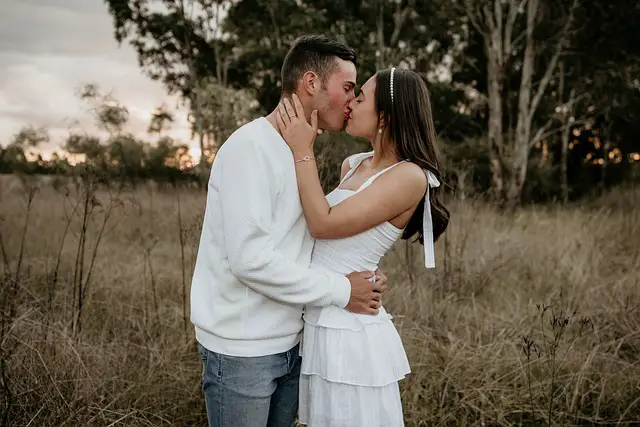How to Respond to “I Love You”
Hearing someone say “I love you” for the first time can evoke a whirlwind of emotions. Whether it comes as a surprise or something you’ve been eagerly awaiting, responding to those three words is significant. Your reply should be thoughtful, genuine, and reflective of your feelings toward the person who said it. Below are some responses, depending on the situation, and tips on how to navigate these tender moments.
1. If You Feel the Same Way
The best-case scenario is when you feel the same and have been waiting to say it yourself. If you’re ready to reciprocate the love, the simplest and most heartfelt response is, “I love you too.” Saying this without hesitation reassures the other person that their feelings are mutual, and it can strengthen the bond between you both.
However, before saying it, take a moment to really consider whether you truly feel the same. Sometimes, emotions can be intense in the moment, and it’s crucial to ensure your feelings are genuine. Expressing love should come from the heart, not from pressure or fear of hurting the other person.
You can also add something personal to make your response more meaningful. For example, “I love you too, and I’m so happy you’re in my life,” shows that you’ve thought about your feelings and are emotionally invested in the relationship.

Related Post : 10 Signs A Man Doesn’t Want To Marry You
2. If You’re Not Ready to Say It
There are situations where someone might say “I love you,” but you’re not quite ready to say it back. This can be tricky, but honesty is the best approach. It’s okay not to rush into reciprocating if you’re still figuring out your feelings. A response like, “That means a lot to me, but I’m not there yet,” is respectful, kind, and communicates your truth.
It’s essential not to feel pressured into saying “I love you” just because the other person did. Saying it too soon, when you’re not ready, can complicate the relationship. A sincere and thoughtful response lets the other person know that you care but need more time to reach that emotional milestone.
You can also express your affection in other ways. For instance, “I really care about you, and I’m excited about where this is going,” shows that you’re committed to the relationship without prematurely declaring love.

3. If You’re Unsure of Your Feelings
Sometimes, you may not know exactly how you feel when someone says “I love you.” In this case, being honest and open is crucial. A reply like, “I’m not sure how I feel right now, but I’m really happy we’re together,” is a considerate way to respond without leading the other person on.
Explaining your uncertainty can be uncomfortable, but it helps build trust in the long run. When you’re unsure of your feelings, it’s essential to have open communication with your partner. This approach can lead to meaningful conversations about where your relationship is headed and how both of you can move forward.
Additionally, reassure your partner that you value them and the relationship. You might say something like, “I appreciate your honesty and how you feel about me. I need a little more time to figure out how I feel, but I’m glad we’re on this journey together.”

4. If You Don’t Feel the Same Way
One of the hardest situations is when someone says “I love you,” and you don’t feel the same. In these cases, honesty is still the best policy. A response like, “I care about you, but I’m not in love,” can be tough to say, but it’s necessary to avoid leading the other person on.
This can be a delicate moment, and it’s important to be kind while staying truthful. You may feel pressure to protect their feelings, but withholding the truth can cause more harm in the long run. The other person deserves to know where you stand, even if it may hurt in the short term.
It’s also okay to explain why you don’t feel the same. You could say, “I really value our time together, but I’m not in the same place emotionally.” This gives the other person some context and helps them understand your perspective.

5. If You’re Surprised
Sometimes, an “I love you” can come as a complete surprise, and you might not know how to react in the moment. If this happens, it’s okay to acknowledge the surprise without immediately responding with your own declaration. For example, “Wow, I wasn’t expecting that, but I really appreciate how honest you are,” is a respectful response that gives you time to process what’s been said.
It’s important not to panic or feel rushed into saying something just because you were caught off guard. Take your time to think about how you feel and respond when you’re ready. You could even follow up later with, “I’ve had some time to think about what you said, and I really value our relationship.”
A thoughtful response after a surprise “I love you” allows you to reflect on your emotions and ensures that your reply, when it comes, is genuine and heartfelt.
In conclusion, responding to “I love you” is not always straightforward, but it’s an important moment that can define the future of your relationship. Whether you’re reciprocating the love, needing more time, or not feeling the same way, honesty, kindness, and communication are key to navigating this vulnerable conversation successfully.


You May Also Like

8 Ways To Make A Guy Desire You More Every Day – Without Changing A Thing About Yourself
September 12, 2024
17 Things You Get When You Marry an Affair Partner
September 9, 2024
